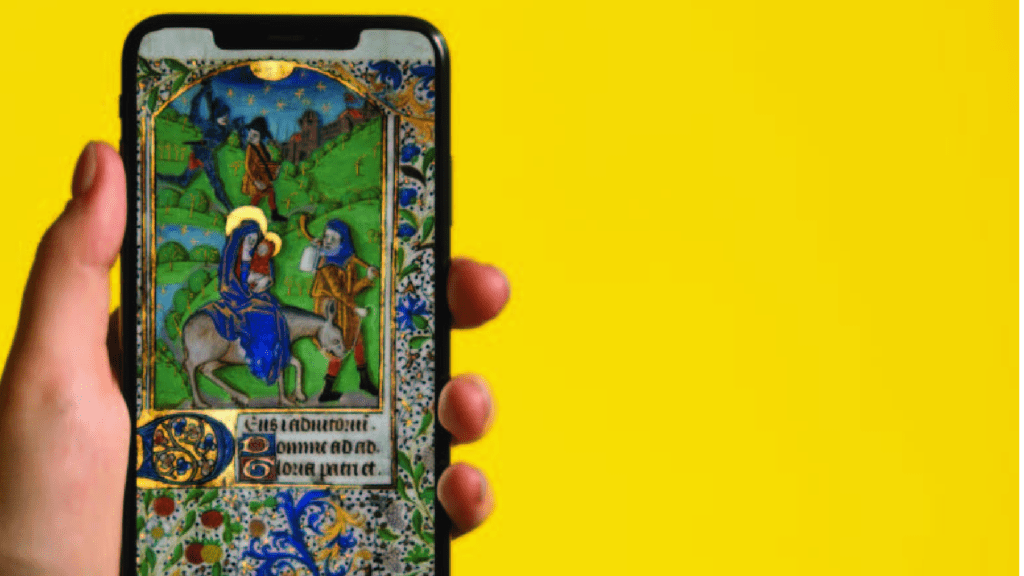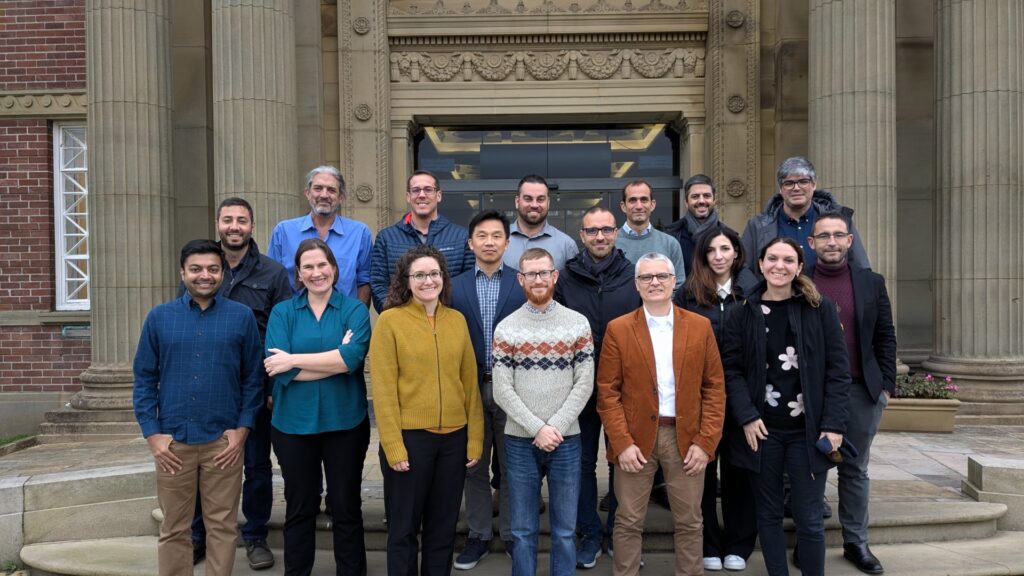Senior Lecturer, Dr Imogen Marcus’ research project, ‘From Manuscripts to Messaging: Orality, Texts and Connectives from Late Medieval to Present Day English’, investigated the extent to which digital writing practices are really ‘new’. Dr Marcus tells us more about this and how you can investigate similar themes on an English Language degree at Edge Hill University.

Why I wanted to explore this topic
I’m interested in how the internet is changing the way we use language, focusing on the ‘rise of writing’. With mediums such as email and instant messaging, and with the declining popularity of the humble phone call, we are writing more in both informal and formal contexts. This change in daily habits is impacting the writing systems of languages across the world.
Current research suggests that writing in the digital sphere, for example on Twitter or instant messaging, is a blend or ‘hybrid’ of linguistic characteristics found in both speech and writing. Previous research comparing digital writing to earlier writing, such as in nineteenth century private letters, concluded that observations about the novelty of digital writing tend to be exaggerated and/or lack historical depth. In other words, the way we are writing online is not as ‘new’ as people might think.

Why this research project is important
The ‘From Manuscripts to Messaging’ research project is important because whilst we know that digital technology is changing the way people use language, we aren’t that sure how yet, largely because the internet has only been around since the 1990s and language change often takes a while to happen. Research projects like this one, which situates digital writing practices in their historical context, helps us to develop our understanding.
How we are investigating this
The project team (myself and research associate Dr Ursula Maden-Weinberger) have produced a publicly available online corpus of non-literary texts which date from the 15th to the 21st century. A corpus, meaning ‘body’ in Latin, is a collection of written texts commonly used in linguistic analysis. This open access online corpus, the Transhistorical Corpus of Written English (TCWE), contains transcripts of: English sermons, letters, legal statutes dating from the 15th – 21st Centuries, as well as emails and instant messaging conversations from the 21st Century.
Two journal articles have also been produced. The first, ‘Connective profiles of five text types in the history of English’ by myself and Research Associate Dr Maden-Weinberger, adopts a ‘connective profiling’ methodology to analyse the frequency and distribution of clause-connecting coordinators and subordinators across different semantic clause types in the five different text types in the TCWE. Previous researchers have found coordination to be more characteristic of speech, whilst subordination is more frequent in the written mode.
The second article, ‘The long history of shortening: a transhistorical pragmatic study of abbreviation from the 15th to the 21st century’, is co-written by myself and Dr Honkapohja (University of Oslo). This article contributes to our understanding of where new media abbreviation is situated in a historical continuum, as well as some surprising results regarding, for instance, where abbreviation practice in 21st Century instant messaging differs from previous centuries. Both articles will be submitted for publication in 2022
What we know so far
At the moment, the overall picture broadly fits with what we expected to find: there are higher frequencies of coordinating conjunctions in sermons, a ‘speech-purposed’ text type, than in statutes, a more writing-based and purposed text type. Statistically significant results are providing more evidence in support of the conceptualisation of digital writing as a blend of spoken and written language, although this depends on the kind of digital writing in question. This research is ongoing.
How you can explore digital communication in language
If you’re interested in exploring digital communication from a linguistic perspective you can do so on the second year English Language module, History and Development of English, and the third year English Language module, Language Change, both currently run by myself. There are also opportunities to write a second year long essay or a third year dissertation on the topic.
July 11, 2022


